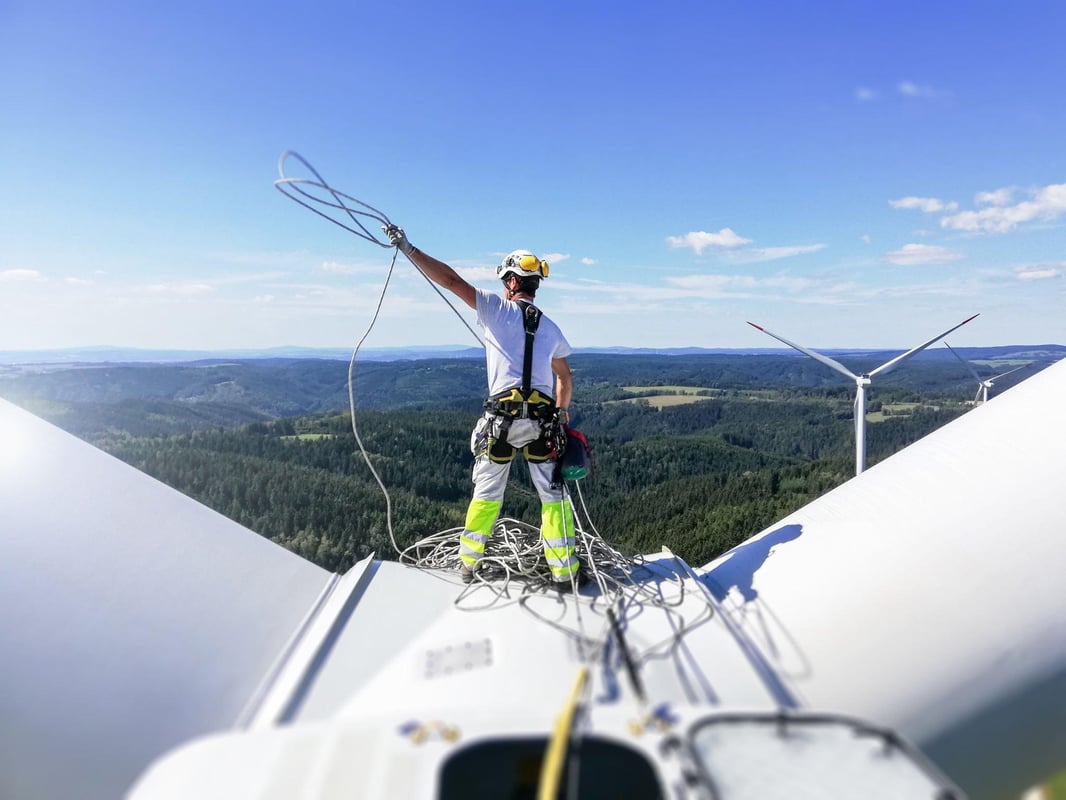How Long Does It Take to Become a Wind Turbine Technician?

If you're interested in renewable energy and have a knack for mechanical work, becoming a wind turbine technician could be a great career choice for you. Wind turbine technicians are responsible for the installation, maintenance, and repair of wind turbines, ensuring that they operate efficiently and safely. But how long does it take to become a wind turbine technician? In this blog post, we'll explore the training requirements and certification programs needed to start a career in this field.
Wind Turbine Technician training requirements
To become a certified wind turbine technician, you'll need to meet certain training requirements. These requirements may vary depending on the program or certification you're pursuing, but some common requirements include:
- High school diploma or equivalent
- Basic math and science skills
- Physical fitness and the ability to work at heights
- Knowledge of electrical systems and mechanical principles
- Understanding of safety protocols and procedures
In addition to these general requirements, some programs may have specific prerequisites or additional criteria. It's important to carefully review the requirements of any program you're considering to ensure that you meet the necessary qualifications.
How to get a job after classes
Once you've completed your wind turbine technician training, you'll be ready to start your career in the field. Here are some steps you can take to increase your chances of finding a job:
-
Build a strong resume: Highlight your training, certifications, and any relevant work experience you have. Emphasize your technical skills, attention to detail, and ability to work in challenging environments.
-
Network with industry professionals: Attend job fairs, industry conferences, and networking events to connect with potential employers and learn about job opportunities. Utilize online platforms like LinkedIn to expand your professional network.
-
Apply for entry-level positions: Look for entry-level positions at wind farms or renewable energy companies. These positions may not offer the highest pay or the most advanced responsibilities, but they can provide valuable experience and a foot in the door.
-
Continue your education: Consider pursuing further certifications or advanced degrees to enhance your skills and increase your chances of career advancement. Continuous learning and staying up-to-date with industry trends and technologies will make you a more competitive candidate.
-
Stay flexible: Wind turbine technician jobs may be located in different regions or countries. Being open to relocation can increase your job prospects and allow you to gain experience in different environments.
Final Thoughts
Becoming a wind turbine technician can be a rewarding career choice for those interested in renewable energy and mechanics. While the length of training programs may vary, completing a certificate or associate's degree program can provide you with the necessary skills and knowledge to start your career. By researching training programs, meeting the requirements, and actively seeking job opportunities, you can embark on a fulfilling journey as a wind turbine technician.
If you're considering pursing this certification in a different state, we have other in-depth guides to help. Check out our guides for different locations below:
Thinking about all of the factors involved in making a career shift? Take a look at some of the guides we've written to help you in your journey.

Joanna Paragas is part of the Growth team at Dreambound. Her primary role involves creating various automation to streamline workflows and make tasks more efficient for the entire team. Beyond her professional endeavors, Joanna enjoys spending her free time playing with her dogs and enhancing her knowledge by enrolling in online courses.



